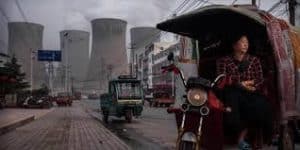
The G20 summit in Osaka, Japan, came and went on June 28–29 without much substance except for the meeting on the sidelines between President Trump, President Xi of China and their teams of advisers. Of course, the subject was the ongoing trade wars between the U.S. and China.
Trump was poised to raise tariffs on the remaining $300 billion of goods imported from China that were not already subject to tariffs. Trump had severely damaged the business of China’s Huawei, the world’s largest manufacturer of telecom equipment. China had retaliated with tariffs on about $150 billion of U.S. imports and had curtailed large purchases of U.S. agricultural produce, especially soybeans. The trade wars were escalating quickly.
As this article details, the result of the G20 meeting was a kind of truce in the war. Trump agreed not to impose tariffs on the additional $300 billion of imports (but did not reduce any existing tariffs). Trump also eased up on U.S. tech sales to Huawei (but did not end the prohibition of Huawei’s products in the U.S. 5G network).
Xi agreed to resume purchases of U.S. soybeans. On the whole, this truce stopped the escalation (for now) and provided some relief for both sides.
Importantly, both China and the U.S. agreed to resume the trade talks that ended abruptly in early May. Stocks rallied on the news, interest rate cuts were stalled and gold fell. Suddenly, the “risk off” mentality became “risk on” and safe-haven assets lost favor.
We’ll see how long this lasts. The open issues in the trade talks are the hardest to resolve (theft of intellectual property and enforcement mechanisms), and there’s no reason to believe they will be resolved quickly.
It may be the truce continues through the 2020 election in order not to disturb the stock market and to help Trump’s reelection chances. But the new cold war between China and the U.S. will last longer than the election cycle and probably longer than Trump’s and Xi’s times in office. Investors should be prepared for the long haul, which means adaptable supply chains and slower growth in China.
Institutional investors can schedule a proof of concept with the world’s first predictive data analytics firm combining human and artificial intelligence with complexity science. Check out Jim Rickard’s company at Meraglim Holdings to learn more.




